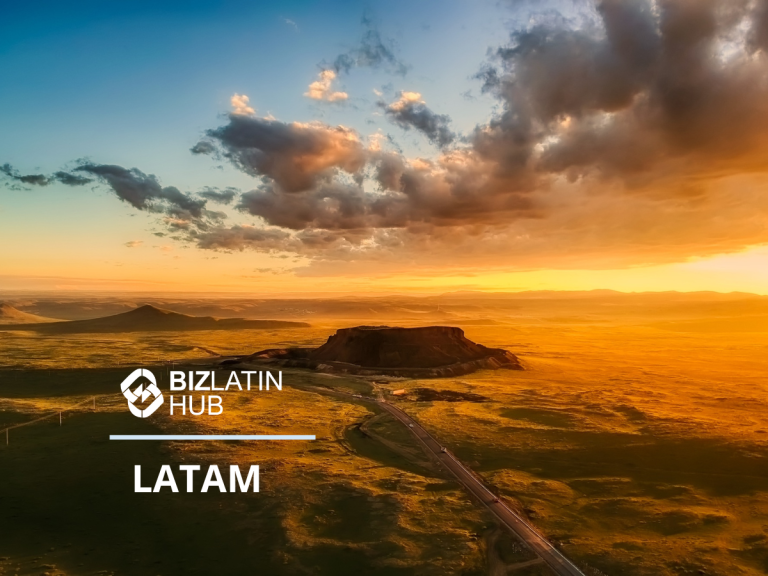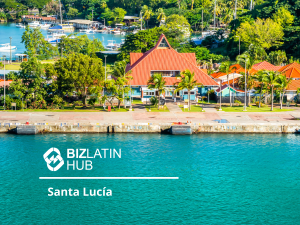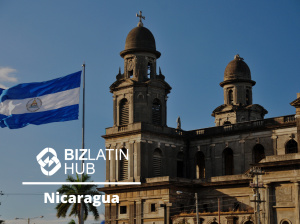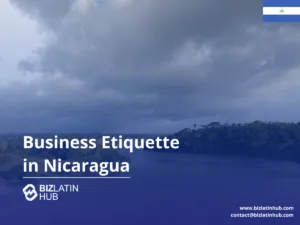If you have been considering company formation in Latin America or establishing a local team, you will need to consider the legal requirements for minimum salary and payroll in Latin America is to ensure your business is staying compliant. At Biz Latin Hub, we can help you across the region, from Mexico City to Buenos Aires and everywhere in between. Our array of back office services is designed to support you wherever you choose to be based.
Key takeaways
| Highest minimum wage in Latin America | Puerto Rico and Costa Rica both have a claim here. The former has the highest general minimum while the latter has a higher rate for postgrads. |
| Average minimum wage across Latin America | While they vary widely, most are between USD$350-$450 |
| Lowest minimum wage in Latin America | Brazil and El Salvador are both in contention here, depending on exchange rates, at around USD$245. |
| Latin American Countries with varying minimum wage | This is particularly common in Central America: Costa Rica, Dominican Republic, El Salvador, Guatemala, Guyana, Honduras, Mexico, Nicaragua and Panama all do this. |
| What is an Aguinaldo (13th/14th Salary)? | This is an obligatory annual bonus payable in most countries in Latin America. It is usually one month’s wage and has rules about when it must be paid. |
Minimum Wage by Country in Latin America 2025
| Country: | USD: | Local Currency: | Date enacted: |
| Argentina | $270 | ARS$286,711 | January 2025* |
| Belize | $475 | BZ$960 | January 2023 |
| Bolivia | $360 | Bs2,500 | January 2025 |
| Brazil | $245 | R$1,518 | January 2025 |
| Chile | $515 | CLP$510,500 | January 2025 |
| Colombia | $330 | COP$1,423,500 | January 2025 |
| Costa Rica | $725 | ₡367,108 | January 2025 |
| Dominican Republic | $232 | RD$14,232 | November 2017 |
| Ecuador | $470 | USD$470** | January 2025 |
| El Salvador | $243.46 | USD$243.46** | January 2024 |
| Guatemala | $430 | Q3,347 | January 2025 |
| Guyana | $290 | GYD$60,000 | July 2022 |
| Honduras | $470 | L11,972 | January 2025 |
| Mexico | $325 | MXN$6,672*** | January 2025 |
| Nicaragua | $155 | C$5,721 | March 2024* |
| Panama | $314 | B/.314** | January 2024 |
| Paraguay | $350 | Gs2,798,309 | January 2025 |
| Peru | $305 | S/1,130 | January 2025 |
| Puerto Rico | $1,820 | USD$1,820** | July 2024 |
| Uruguay | $545 | $U23,604 | January 2025 |
Major changes to minimum salary in Latin America in 2025
Most countries in Latin America update their minimum salary annually to reflect the increase in the cost of living due to a combination of economic growth and inflation. However, there are a couple of exceptions. Due to the challenging macroeconomic conditions in Argentina, for example, their minimum salary changes on a monthly basis.
Colombia has recorded a near ten per cent raise in its minimum wage this year. This adjustment means the monthly figure is now COP$1,423,500 million pesos (USD$330). In recent years, the Colombian minimum wage has risen significantly, almost doubling in a decade. This is in part due to the country having its first ever leftist leader. There is also COP$200,000 (USD$50) in transport subsidy.
Under new president Claudia Sheinbaum, the Mexican minimum wage has risen to MXN$278.80 (USD$13.50) per day. Simultaneously, within the Northern Border Free Zone with the United States of America, the minimum wage is set to escalate to MXN$419.88 (USD$20) per day.
The Brazilian government has set the minimum wage for 2025 at R$1,518 (USD$245), aligning with the recently sanctioned minimum wage increase policy, as endorsed by Congress. The policy hinges on the combined impact of two metrics: inflation gauged by the National Consumer Price Index (INPC) and the genuine growth observed in the gross domestic product (GDP) over the preceding two years.
Chile had originally proposed a gradual elevation of the minimum wage to a stable CLP$500,000 Chilean pesos for a number of years. However, the strength of the US dollar and steep increases in the cost of living have forced a readjustment, with the current rate now CLP$515,500 (USD$515) and likely to increase again next year.
With a fully dollarized economy, Ecuador stands somewhat apart, in that its currency is incredibly strong by regional standards. Consequently, the minimum wage in the country has risen just USD$10 this year to USD$470. In Panama and El Salvador, also dollarized, there was no increase at all for 2025.
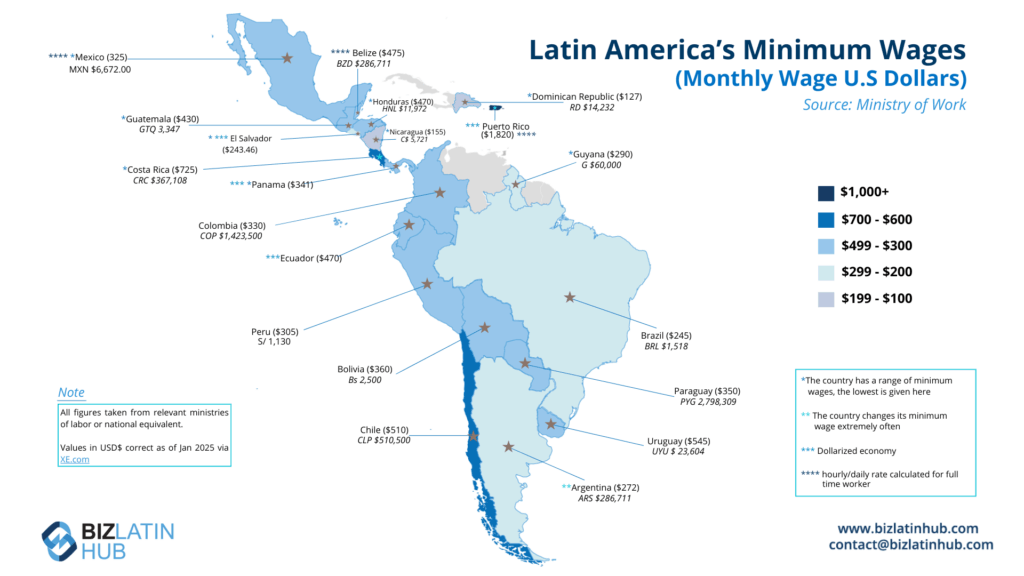
How do minimum wages work in Latin America?
This is largely self-explanatory – minimum wages are the lowest possible wage that can be paid to a legally employed worker. They are usually expressed in monthly terms, although some countries buck this trend. A minimum wage also implies the payment of any bonuses, such as the transport subsidy in Colombia.
Related to this is the aguinaldo payment. This is a yearly bonus which is not connected to performance. Generally speaking, it normally consists of one month’s payment, but in some countries it is two. It is usually paid as a lump sum in December, although some countries mandate the total amount to be split and paid at various stages of the year.
In Central America especially, there are a lot of variations in minimum wage. These countries generally set different rates depending on sector. In some countries there is also a distinction between certain geographical areas and exemptions for free trade zones. Finally, qualifications can play a part in this, with higher rates for university graduates, among others. Panama and Costa Rica especially have very wide ranges.
Mexico, too, draws a distinction between the Northern Border Zone with the United States and the rest of the country. Not only that, but it defines its minimum wage by daily rate as opposed to monthly rate as is common within the region.
In the parts of the Caribbean, too, minimum wages are not usually counted on a monthly rate, with hourly rates more normal. That’s true of Puerto Rico (an unincorporated part of the United States of America) and the culturally Caribbean Belize, for example.
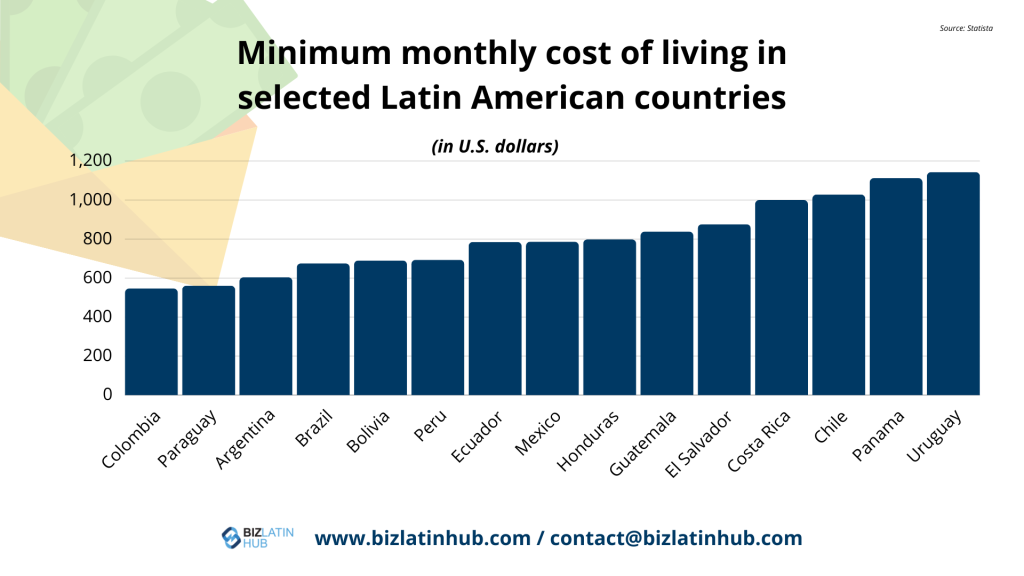
Which country in Latin America has the highest minimum wage?
As part of the United States of America, although unincorporated, Puerto Rico benefits from a high minimum wage. It may be relatively low compared to some other parts of the country, but USD$10.50 per hour is regionally very strong. For a full time worker, that’s USD$1,820 per month – significantly higher than neighbouring countries.
Uruguay has the highest minimum wage in South America, currently at $U23,604 Uruguayan pesos which is about USD$545. Chile follows with a minimum wage of CLP$510,500 Chilean pesos, equivalent to about USD$515 per month.
Thanks to the complicated system of minimum wages by sector and qualification, Costa Rica has the second highest possible minimum wage in the region. For a postgraduate in an important sector, the minimum wage is CRC$784,139 (USD$1,550) per month.
What is the lowest minimum wage in Latin America?
With the exception of Venezuela, for which data is extremely unreliable and distorting, there are some surprising names at the bottom of the list for minimum salary in Latin America. Depending on exchange rates, El Salvador and Brazil take this dubious distinction.
This shows that strength of economy does not always correlate with a high minimum salary in Latin America. Argentina, too, has a relatively low minimum salary, although this is complicated slightly by the current fiscal policy the government is pursuing.
If you are looking for skilled labor markets at competitive rates, Argentina, Brazil and El Salvador stand out as good locations to consider.
FAQs on minimum salary in Latin America
They are the minimum possible wage that can be paid to a legally employed worker. This is usually monitored carefully by the local ministry of labor, so you need to be sure that you are compliant with the law. It will also include related benefits such as the aguinaldo that is widespread in the region. They are usually given as monthly rates, but some countries such as Belize, Mexico and Puerto Rico set hourly/daily rates.
Puerto Rico tops the list in terms of absolute minimum salaries. Within South America, Uruguay comes out top, closely followed by Chile.
Although the minimum salaries in the region vary widely, they are usually around USD$350-450, give or take a little bit. It is worth noting that fluctuations in exchange rates can rapidly affect this and so it is always worht consulting a regional specialist both to check current rates and potential future changes.
This is usually due to differing salaries by sector and/or location. In Central America this is normalized and almost every country has a range of minimum salaries for different jobs. In this case, you would be well advised to consult an expert such as Biz Latin Hub to make sure that you stay compliant with local employment law.
An aguinaldo is an obligatory bonus payment that exists in most countries in Latin America. It normally consists of one month’s payment, but in some countries it is two. It is usually paid as a lump sum in December, although some countries mandate the total amount to be split and paid at various stages of the year.
Generally they change annually (normally in January) to reflect changes in the cost of living and economic growth. However, some countries occasionally have particularly turbulent economic spells, such as Argentina in recent years. In these cases, minimum salaries may change monthly but it is usually given a number of months in advance by the local ministry of labor.
Biz Latin Hub can help you understand minimum salary in Latin America
At Biz Latin Hub, we provide integrated market entry and back-office services throughout Latin America and the Caribbean, with offices in major cities in the region.
We also have trusted partners in many other markets. Our unequaled reach means we are ideally placed to support multi-jurisdiction market entries and cross-border operations.
As well as knowledge about minimum salary in Latin America, our range of services includes hiring & PEO accounting & taxation, company formation, bank account opening, and corporate legal services.
Contact us today to learn more about how we can assist you in finding top talent or doing business in Latin America and the Caribbean.
If this article on changes to minimum salary in Latin America was of interest to you, check out the rest of our region coverage. Or read about our team and expert authors.

